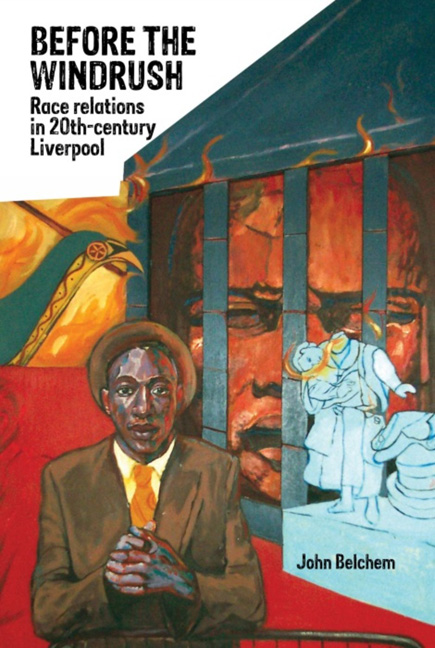Book contents
- Frontmatter
- Dedication
- Contents
- List of illustrations
- List of tables
- List of abbreviations
- Acknowledgements
- Preface
- Introduction: ‘The most disturbing case of racial disadvantage in the United Kingdom’
- Chapter One Edwardian cosmopolitanism
- Chapter Two Riot, miscegenation and inter-war depression
- Chapter Three Wartime hospitality and the colour bar
- Chapter Four Repatriation, reconstruction and post-war race relations
- Chapter Five Race relations in the 1950s
- Chapter Six 1960s: race and youth
- Chapter Seven The failure of community relations
- Chapter Eight ‘It took a riot’
- Sources consulted
- Index
Chapter Four - Repatriation, reconstruction and post-war race relations
- Frontmatter
- Dedication
- Contents
- List of illustrations
- List of tables
- List of abbreviations
- Acknowledgements
- Preface
- Introduction: ‘The most disturbing case of racial disadvantage in the United Kingdom’
- Chapter One Edwardian cosmopolitanism
- Chapter Two Riot, miscegenation and inter-war depression
- Chapter Three Wartime hospitality and the colour bar
- Chapter Four Repatriation, reconstruction and post-war race relations
- Chapter Five Race relations in the 1950s
- Chapter Six 1960s: race and youth
- Chapter Seven The failure of community relations
- Chapter Eight ‘It took a riot’
- Sources consulted
- Index
Summary
The main agencies promoting the ‘middle opinion’ on race relations (to use Paul Rich's terminology), had concentrated their wartime efforts on Liverpool, extending their respective remits to consider the needs (and reassess the character) of the long-term resident ‘coloured’ population. This advance into the domestic domain notwithstanding, colonial advance remained the priority for both the LCP and the Colonial Office Welfare Department, a project premised on economic development and gradual diffusion of political power to groups of ‘“moderate” and amenable nationalist opinion’. ‘Although many V-days had passed, they were waiting for the V N-day when the Negro could go to bed, knowing that his battle had been won,’ S.U. Morris declared at the ‘Coloured People's Plea to Churches’ meeting at the British Council House in autumn 1945, convened by the LCP to encourage all Merseyside churches to allow one of its members to preach from their pulpits: ‘The British Government's policy of training the colonial peoples for self-government was all right as far as it went. The trouble was, he said, finding the criterion of fitness for self-government.’ Promotion of harmonious political relationships in colonies moving towards independence was the key concern, but there was a simultaneous need – in Liverpool at least – to consider how best to progress from wartime temporary accommodation to the ‘absorption’ or ‘integration’ of black ‘residents’ from the empire and commonwealth. (‘Alien’ Chinese were once again deported without hesitation or question.)
Eventually opened in 1946, the flagship Stanley House project seemed to offer inclusion for black Liverpudlian residents within the post-war construction of Britishness. However, other initiatives by the Colonial Office Welfare Department, such as vigorously promoted repatriation schemes and stricter regulation of stowaways, indicated that there was no desire for any increase in numbers of ‘dark strangers in our midst’. The increasing inward flow of ‘coloured’ colonials – readily apparent in Liverpool before the fabled arrival of the Empire Windrush at Tilbury in June 1948 – was neither encouraged nor welcomed. A re-affirmation of pre-war definitions of imperial citizenship, the British Nationality Act of 1948 maintained an open door for all British subjects from the Empire and Commonwealth, but there was a marked preference for post-war labour market needs to be met instead by ‘alien’ workers from Eastern Europe, recruited on the basis of their ‘presumed genetic similarity’.
- Type
- Chapter
- Information
- Before the WindrushRace Relations in 20th-Century Liverpool, pp. 121 - 160Publisher: Liverpool University PressPrint publication year: 2014



